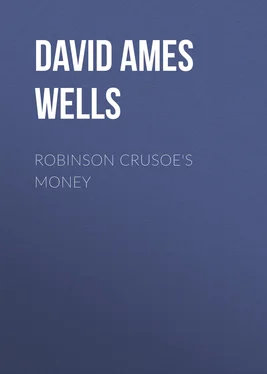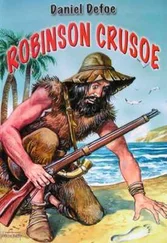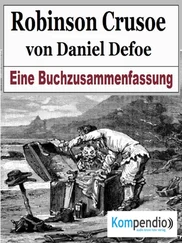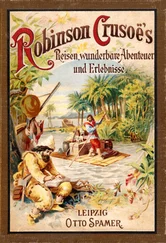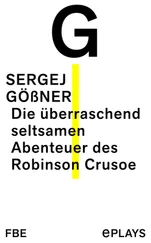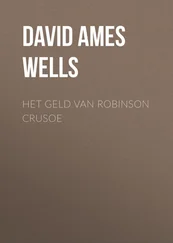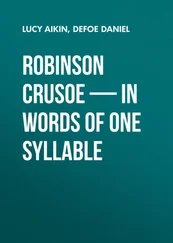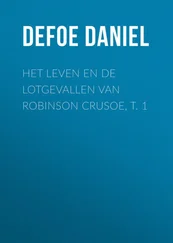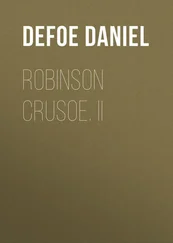David Ames Wells - Robinson Crusoe's Money
Здесь есть возможность читать онлайн «David Ames Wells - Robinson Crusoe's Money» — ознакомительный отрывок электронной книги совершенно бесплатно, а после прочтения отрывка купить полную версию. В некоторых случаях можно слушать аудио, скачать через торрент в формате fb2 и присутствует краткое содержание. Издательство: Иностранный паблик, Жанр: popular_business, foreign_edu, на английском языке. Описание произведения, (предисловие) а так же отзывы посетителей доступны на портале библиотеки ЛибКат.
- Название:Robinson Crusoe's Money
- Автор:
- Издательство:Иностранный паблик
- Жанр:
- Год:неизвестен
- ISBN:нет данных
- Рейтинг книги:4 / 5. Голосов: 1
-
Избранное:Добавить в избранное
- Отзывы:
-
Ваша оценка:
- 80
- 1
- 2
- 3
- 4
- 5
Robinson Crusoe's Money: краткое содержание, описание и аннотация
Предлагаем к чтению аннотацию, описание, краткое содержание или предисловие (зависит от того, что написал сам автор книги «Robinson Crusoe's Money»). Если вы не нашли необходимую информацию о книге — напишите в комментариях, мы постараемся отыскать её.
Robinson Crusoe's Money — читать онлайн ознакомительный отрывок
Ниже представлен текст книги, разбитый по страницам. Система сохранения места последней прочитанной страницы, позволяет с удобством читать онлайн бесплатно книгу «Robinson Crusoe's Money», без необходимости каждый раз заново искать на чём Вы остановились. Поставьте закладку, и сможете в любой момент перейти на страницу, на которой закончили чтение.
Интервал:
Закладка:
Finally, the secret of the whole matter gradually leaked out. Other people besides the original three shrewd fellows found out where the supply of cowries came from, and made haste to visit the remote island, provide themselves with money, and put it in circulation. But the more money that was issued, the more was needed to supply the wants of trade, until at last it took a four-horse wagon-load of cowries to buy a bushel of wheat. Then the bubble burst. Stock-companies all failed. Trade became utterly stagnant. The man whom Robinson Crusoe had made secretary of the island treasury thought he could help matters by issuing a few more cowries, but it was no use. Some very wise persons were certain that every thing would be all right again if people would only have confidence; but as long as the people who worked and saved were uncertain what they were to receive for the products of their labor—something or nothing—confidence didn’t return. Every body felt poor and swindled. Every body who thought he had money in savings-banks woke up all at once to the realization that his money was nothing but a lot of old shells. Every body had his bags, his tills, and his money-boxes filled with shells, which he had taken in exchange for commodities which had cost him valuable time and labor. Strictly speaking, however, calamity did not overtake every body. There were some exceptions, namely the shrewd and idle fellows who had first found the cheap supply of cowries, and, taking advantage of the ignorance of the community, had added them to the before-existing circulation to serve as money. All these had taken very good care to keep the substantial valuable things—houses, lots, plows, grain, etc.—which they had received in exchange. They had, in fact, grown rich by robbing the rest of the community. 4 4 “In the midst of the public distress, one class prospered greatly—the bankers; and, among the bankers, none could, in skill or in luck, bear a comparison with Charles Duncombe. He had been, not many years before, a goldsmith of very moderate wealth. He had probably, after the fashion of his craft, plied for customers under the arcades of the Royal Exchange, had saluted merchants with profound bows, and had begged to be allowed the honor of keeping their cash. But so dexterously did he now avail himself of the opportunities of profit which the general confusion of prices gave to a money-changer, that, at the moment when the trade of the kingdom was depressed to the lowest point, he laid down near ninety thousand pounds for the estate of Helmsley, in the North Riding of Yorkshire.”—Macaulay’s History of England, State of the Currency in 1694–’95 .
The community, however, were too courteous to call them thieves, and in conversation they were usually referred to as shrewd financiers, and as men ahead of their time. The concluding act of this curious island experience was, that the formerly so highly prized money became depreciated to such an extent as to possess value only as a material for making lime. The people accordingly, by burning, made lime out of it, and then, in order to make things outwardly cheerful, used the lime as white-wash. But upon one point they were all unanimous, and that was, that the next commodity they might select to use as money should be something whose permanency of value did not depend on elements capable of being suddenly affected by accidental circumstances, or arbitrarily and easily changed by the devices of those who desired to get their living without working for it.
But this experience of the islanders in reference to the originating and using of money, although curious, has not been exceptional; for the records of history show that men almost everywhere, in going through the process of civilization, have had a greater or less measure of the same experience. One particularly noteworthy illustration of this is recorded in the “History of New York,” by Diedrich Knickerbocker, and in the manuscript records of the New York Historical Society. It was in the days of Dutch rule—1659—in New Amsterdam (afterward New York), when the common money in use was the so-called Indian money, or “wampum;” which consisted “of strings of beads wrought of clams, periwinkles, and other shell-fish. These had formed a simple currency among the savages, who were content to take them of the Dutch in exchange for peltries.”
William Kieft was at that time governor, and being desirous of increasing the wealth of New Amsterdam, and withal, as the historian relates, somewhat emulous of Solomon (who made gold and silver as plenty as stones in the streets of Jerusalem), he (the governor) determined to accomplish his desire, and at the same time rival Solomon by making this money of easy production the current coin of the province. “It is true, it had an intrinsic value among the Indians, who used it to ornament their robes and moccasins; but among the honest burghers it had no more intrinsic value” than bits of bone, rag, paper, or any other worthless material. “This consideration, however, had no weight with Governor Kieft. He began by paying all the servants of the company, and all the debts of the Government, in strings of wampum. He sent emissaries to sweep the shores of Long Island, which was the Ophir of this modern Solomon, and abounded in shell-fish. These were transported in loads to New Amsterdam, coined into Indian money, and launched into circulation.”
“And now for a time affairs went on swimmingly. Money became as plentiful as in the modern days of paper currency, and, to use a popular phrase, ‘a wonderful impulse was given to public prosperity.’”
Unfortunately for the success of Governor Kieft’s scheme, the Yankees on Connecticut River soon found that they could make wampum in any quantity, with little labor and cost, out of oyster-shells, and accordingly made haste to supply all the wampum that the wants of trade in New Amsterdam required; buying with it every thing that was offered, and paying the worthy Dutchmen their own price. Governor Kieft’s money, it is to be further noticed, had also in perfection that most essential attribute of all good money, “ non-exportability .” Accordingly, when the Dutchmen wanted any tin pans or wooden bowls of Yankee manufacture, they had to pay for them in substantial guilders, or other sound metallic currency; wampum being no more acceptable to the Yankees in exchange than addled eggs, rancid butter, rusty pork, rotten potatoes, or any other non-exportable Dutch commodity. 5 5 “Beyond the sea, in foreign lands, it (the greenback) fortunately is not money; but, sir, when have we had such a long and unbroken career of prosperity in business as since we adopted this non-exportable currency?”— Speech of Hon. William D. Kelley, House of Representatives , 1870. “I desire the dollar to be made of such material, for the purpose, that it shall never be exported or desirable to carry out of the country. Framing an American system of finance, I do not propose to adapt it to the wants of any other nation.”— Speech of General B. F. Butler before the New York Board of Trade , October 14th, 1875.
The result of all this was, that in a little time the Dutchmen and the Indians got all the wampum, and the Yankees all the beaver-skins, Dutch herrings, Dutch cheeses, and all the silver and gold of the province. Then, as might naturally have been expected, confidence became impaired. Trade also came to a stand-still, and, to quote from the old manuscript records, “the company is defrauded of her revenues, and the merchants disappointed in making returns with which they might wish to meet their engagements.” It is safe to conclude that, after this, the commodity made use of by the Dutchmen as money was something less liable to have its value impaired than wampum.
The early settlers in East Tennessee also came to a similar conclusion, after a somewhat similar experience. Raccoon-skins were in demand for various purposes, and consequently were valuable. They accordingly selected them for use as money. Opossum-skins, on the other hand, were not in demand, and therefore had little value. Those of the settlers who desired to discharge their obligations without giving a full equivalent paid their taxes in opossum-skins to which coons’ tails were attached. The counterfeits having once got into the treasury, could not be exported out of the treasury to meet the payments of the State, and the use of coon-skins as currency came to an end.
Читать дальшеИнтервал:
Закладка:
Похожие книги на «Robinson Crusoe's Money»
Представляем Вашему вниманию похожие книги на «Robinson Crusoe's Money» списком для выбора. Мы отобрали схожую по названию и смыслу литературу в надежде предоставить читателям больше вариантов отыскать новые, интересные, ещё непрочитанные произведения.
Обсуждение, отзывы о книге «Robinson Crusoe's Money» и просто собственные мнения читателей. Оставьте ваши комментарии, напишите, что Вы думаете о произведении, его смысле или главных героях. Укажите что конкретно понравилось, а что нет, и почему Вы так считаете.
